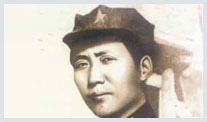|
Beijing residents elect neighborhood committee leaders 
|
| 2002-11-01 14:50:16 |
In mid-August this year, people living in a downtown Beijing residential section cast their votes in the area's first ever-democratic multi-candidate election of a local community chief and officials. Some say this is an effective way to strengthen the building of socialist democracy at the grass-roots level.
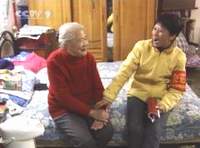 For Cao Jianjun, the director of the Jiudaowan Neighborhood Committee in downtown Beijing, visiting homes in the neighborhood has become a daily routine. She took up her job as the head of the neighborhood committee only two months ago in the first ever direct multi-candidate election of a local community committee in Beijing.
For Cao Jianjun, the director of the Jiudaowan Neighborhood Committee in downtown Beijing, visiting homes in the neighborhood has become a daily routine. She took up her job as the head of the neighborhood committee only two months ago in the first ever direct multi-candidate election of a local community committee in Beijing.
"After the residents elect you, they are waiting to see with their own eyes if you are fulfilling your commitments. I'm doing my best to deliver what I have promised," said Cao Jianjun, head of Jiudaowan Neighborhood Committee.
Neighborhood Committees are self-governing bodies serving urban residents in China. Though a grassroots organization, the committee plays a unique role in Chinese society. Its responsibilities include maintaining security, creating and keeping an amiable environment, and mediating in neighborhood disputes. They also help disadvantaged residents, such as disabled persons, orphans and the elderly living alone.
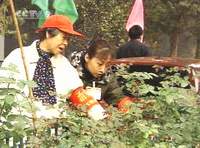 Members of the neighborhood committees are usually appointed by the local government or selected by the committee itself. Starting from 1999, experiments were carried out in some cities where residents can vote for their own neighborhood leaders. And this year, Jiudaowan, a typical Beijing community in terms of its environment and population, was selected as a trial area to pioneer the direct election, the first such election in the political center of China.
Members of the neighborhood committees are usually appointed by the local government or selected by the committee itself. Starting from 1999, experiments were carried out in some cities where residents can vote for their own neighborhood leaders. And this year, Jiudaowan, a typical Beijing community in terms of its environment and population, was selected as a trial area to pioneer the direct election, the first such election in the political center of China.
More than 2,700 enthusiastic residents from 1,145 households in the Jiudaowan Community actually cast their vote in the election on August 17. The turnout was as high as 95%.
Though many have yet to grasp the real implications of the election at the grassroots of the grassroots, Professor Dong Lisheng with the Chinese Academy of Social Sciences said that the neighborhood committee election is of great significance.
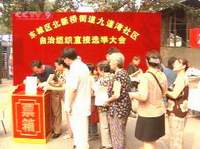 In the past two months, the newly elected staff of the Jiudaowan Neighborhood Committee, comprised of nine women, spared no efforts to fulfill their commitment. New exercise equipment has been set up outside to encourage more residents to come outside and stay fit. The initiatives of the Jiudaowan Community have proven to be successful and their services have been welcome by the residents.
In the past two months, the newly elected staff of the Jiudaowan Neighborhood Committee, comprised of nine women, spared no efforts to fulfill their commitment. New exercise equipment has been set up outside to encourage more residents to come outside and stay fit. The initiatives of the Jiudaowan Community have proven to be successful and their services have been welcome by the residents.
"I am very satisfied with their work. We elect the neighborhood committee by ourselves. They have helped us to solve a lot of problems in our daily life," said Qin Lianying, a Jiudaowan resident.
"Now more younger people are taking the job. They are better educated, more energetic and can do a better job," said Li Zhongxin, a Jiudaowan resident.
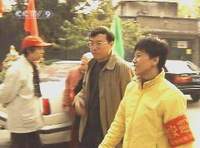 Although she has won the approval of the residents in her first two-months of work, Cao Jianjun and her colleagues are quite aware that they will work under constant pressure. And that's exactly what a direct election means.
Although she has won the approval of the residents in her first two-months of work, Cao Jianjun and her colleagues are quite aware that they will work under constant pressure. And that's exactly what a direct election means.
"We were selected to serve the residents, it means that the people believe in us, and we should deserve their trust. The only way we can repay such trust is to do our jobs better and better," said Cao Jianjun.
Better services are of course what the residents are expecting. But that's not all. What's more important is that they can exercise their right of real self-governing. In this sense, this centuries-old neighborhood has turned a new page.
|
|








